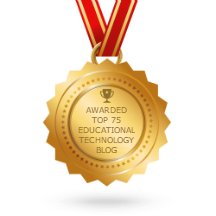The sixth of the sessions from the 2023 annual meeting of the American Educational Research Association that I identified as relevant to this space that I have the opportunity to blog is:
- Do Virtual Charter Schools Deliver for Some but Not Others? An Analysis of Academic Outcomes – Daniel Hamlin, University of Oklahoma; Curt M. Adams, University of Oklahoma; Olajumoke Beulah Adigun, Oklahoma State University
Abstract
Enrollments in virtual schools have surged nationally. Some policymakers have supported virtual schools because of their ability to extend educational options to families in rural areas where school choice is limited. In this study, we analyze data from Oklahoma (2017-2019) to compare the academic performance of virtual charter and brick-and-mortar public school students. We also examine outcomes for students who switched into a virtual charter school from a rural brick-and-mortar public school. Results indicate relatively large negative associations with achievement for students who attend virtual charter schools as well as for virtual charter school students from rural areas. Negative associations were mostly consistent for students across different models for students in grades 3 to 8 and in high school.
Authors
- Daniel Hamlin, University of Oklahoma
Presenting Author
- Curt M. Adams, University of Oklahoma
Non-Presenting Author
- Olajumoke Beulah Adigun, Oklahoma State University
Non-Presenting Author
Which was in this session:
Student and School Personnel Outcomes in Schools of Choice
Fri, April 14, 11:40am to 1:10pm CDT (9:40 to 11:10am PDT), Swissôtel Chicago, Floor: Lucerne Level, Lucerne 2Session Type: Paper Session
Sub Unit
- SIG-Charters & School Choice
Chair
- David T. Marshall, Auburn University
The presenter began with some background on full-time virtual schools, and described it – from a pre-pandemic sense – as a phenomenon. Suggesting that there was a 47% increase in the number of full-time virtual schools. Then she outlined all of the the positive reasons why virtual schools are needed and have grown, at least from the perspective of proponents. However, she also had a slide with all of the neo-liberals reports that have shown that students enrolled in those full-time virtual charter schools performance is negative compared to brick-and-mortar students.
In terms of this particular study…

In terms of the results…

The data was also analyzed by stayers (i.e., those that spend three or more years in a virtual school) and those that switch during the year.


Finally, the data was presented for just high school.

Even though the results were completely negative, the presenter made a point to stress that the findings were not caused by full-time virtual school, and then went into all of the reasons why the results might have been as they were – the typical rationale that is often made for why full-time virtual schools perform so poorly. Finally, the presenter speculated a series of reasons why full-time virtual schools filled a need – which she continued to do during the Q&A (and I guess one would expect from folks in the charter SIG). By the end I was unsure if she was simply newer to the field and had a lot of intellectual curiosity about the potential variables or if she was a charter school proponent providing potential excuses.












 12 Unique Blogs Are Written By Professors
12 Unique Blogs Are Written By Professors